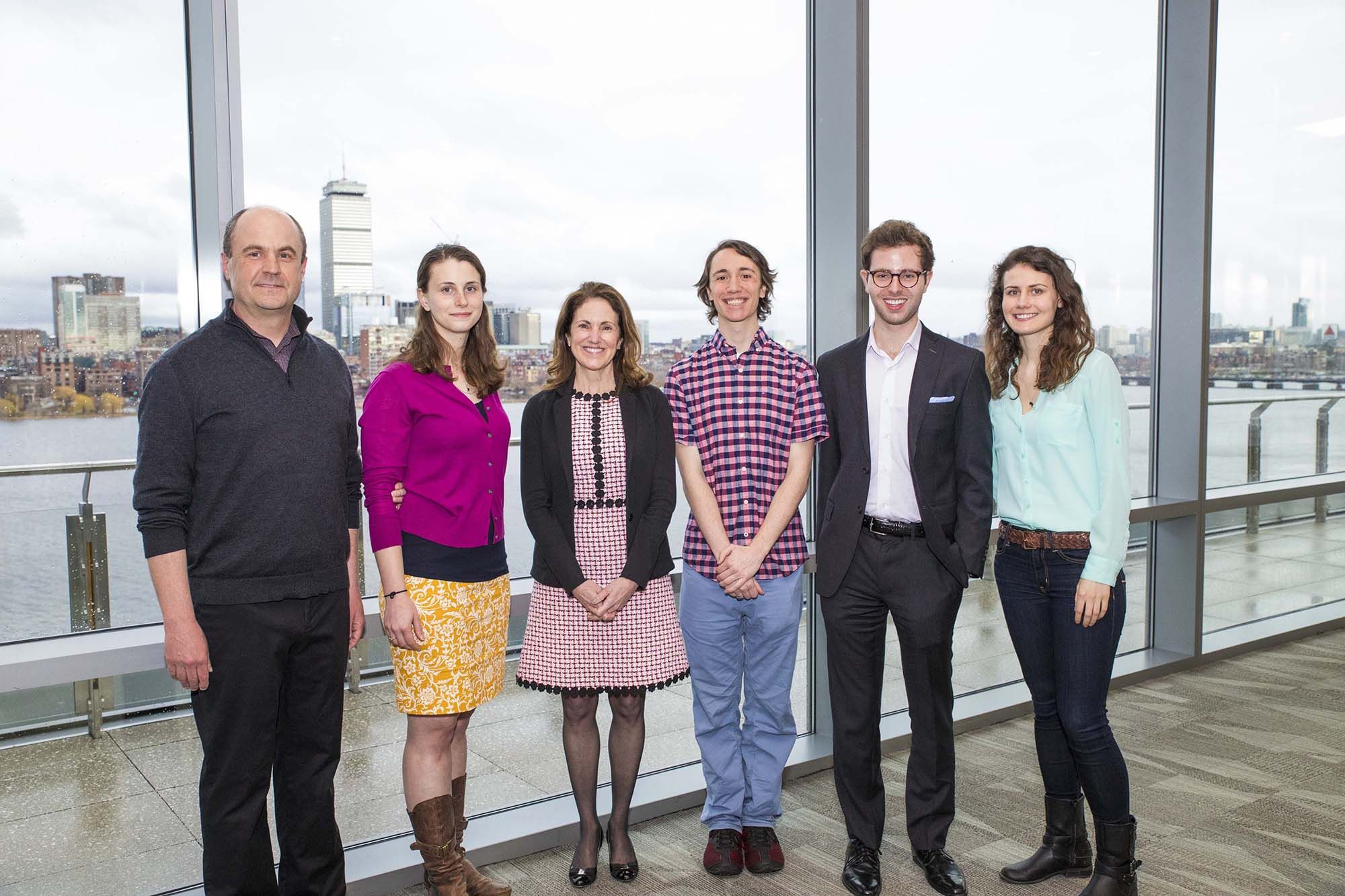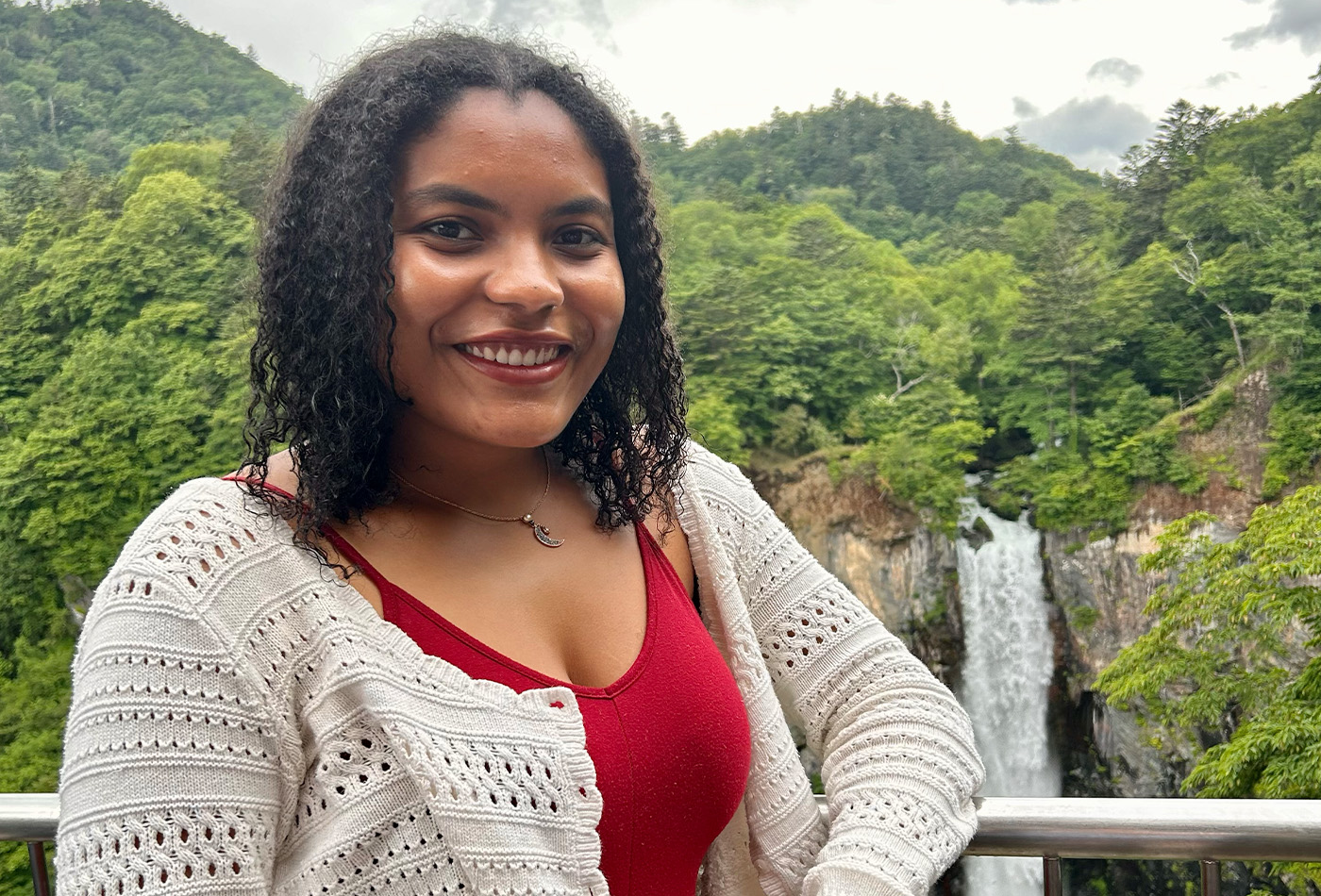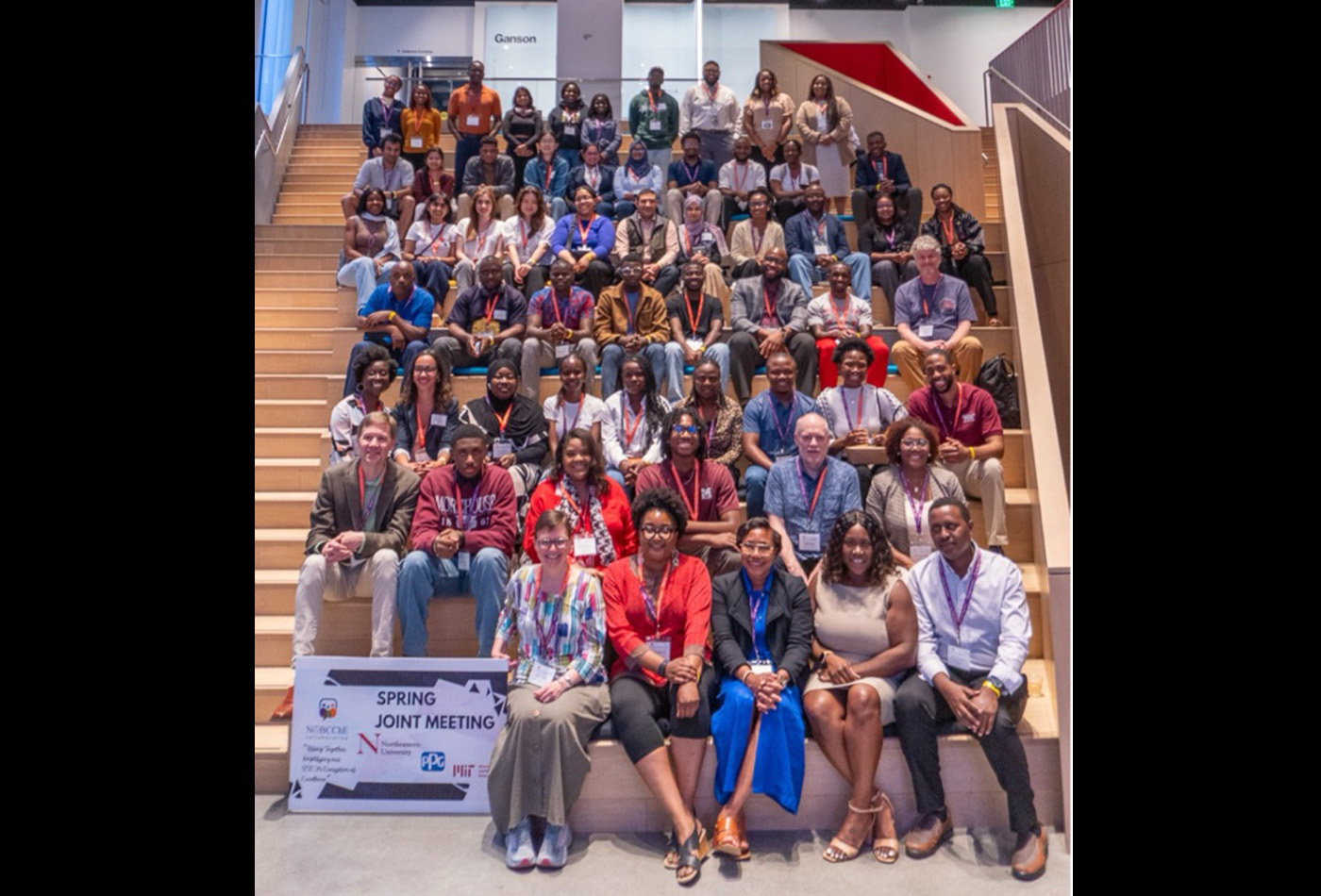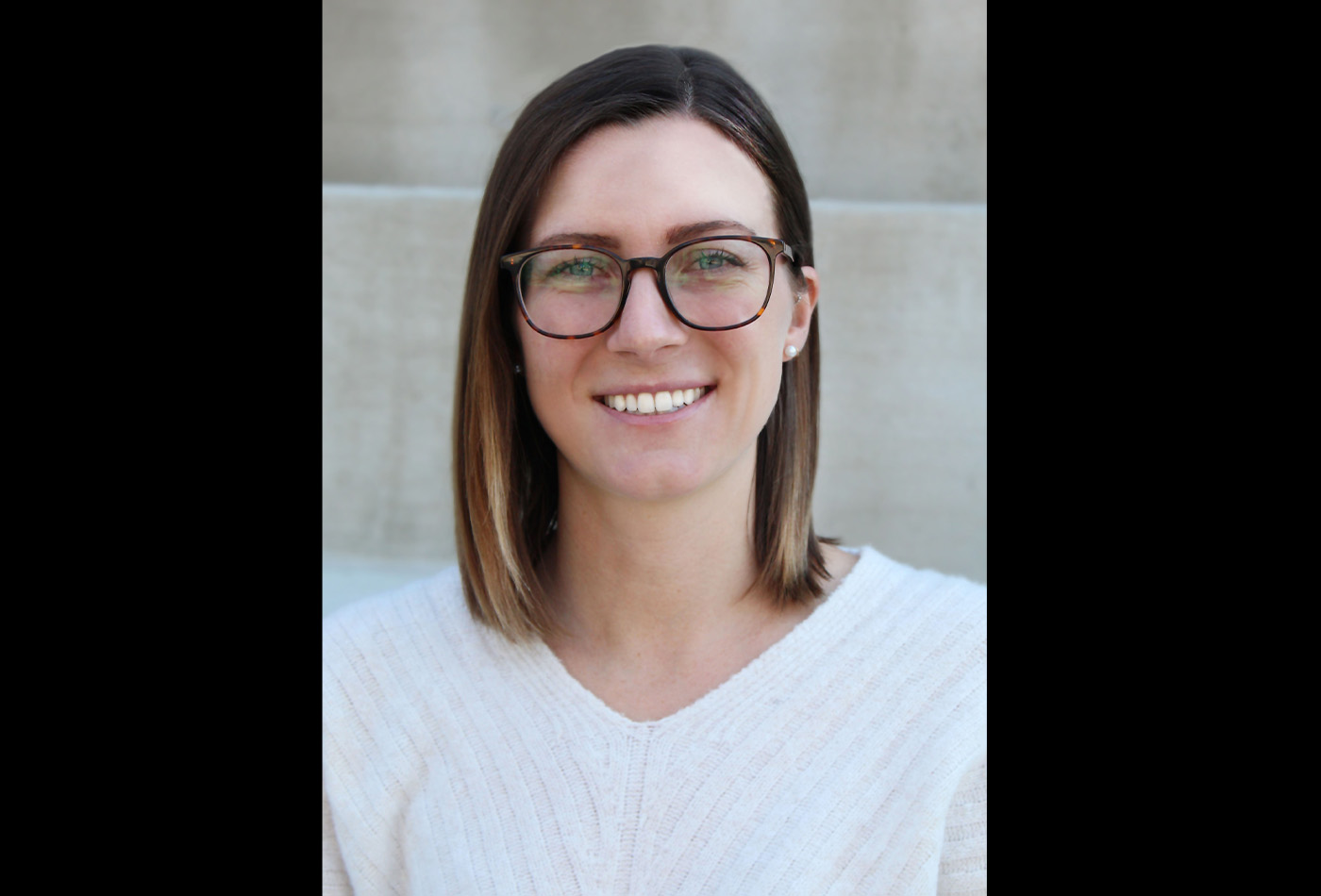2018 Change Makers honored for their work to combat sexual misconduct
Violence Prevention and Response and Title IX and Bias Response Office celebrate individuals making a difference in the fight to end sexual harassment and assault.
On April 4, Institute leaders, faculty, students, and staff came together to honor the individuals, student groups, and departments who have made outstanding contributions to preventing and responding to sexual misconduct at MIT in the 2017-18 academic year. Dubbed “Change Makers,” award recipients were recognized by MIT Violence Prevention and Response (VPR) and the Title IX and Bias Response Office for their efforts to reflect the values and mission of the Institute; challenge harmful attitudes, language, and behaviors; and help bring about important changes in culture.
“The wave of national sexual assault cases that came to light this year served as a painful reminder that sexual misconduct is pervasive, and underscored that, at MIT, we all have a responsibility as individuals and as a community to be forces for positive change,” said Chancellor Cynthia Barnhart during welcoming remarks at the ceremony. “That’s exactly what our 2018 Change Makers are doing — taking responsibility for raising awareness, increasing education, and making clear that sexual misconduct has no place at MIT. I am impressed by and thankful for the example set by our students, student groups, and departments and the excellent work they do to make our community more safe, respectful, and welcoming to all.”
The 2018 Change Maker honorees are:
- Graduate Women at MIT (GWAMIT) was recognized in the student group category for their efforts to raise awareness about sexual harassment and gender equity at MIT and other colleges. GWAMIT has hosted community discussions throughout the year, and partnered with the Title IX and Bias Response Office and various graduate women’s groups across campus to promote collaboration and the sharing of best practices. This work resulted in the development of several department-based climate surveys at MIT, a New England-area survey of graduate students, and a recent Title IX summit with local institutions of higher education.
- The Department of Chemistry’s efforts to enhance education and training for faculty, students, and staff were selected and highlighted as a model for other MIT departments to follow. Spearheaded by former chemistry graduate student Michelle Macleod and enthusiastically endorsed by department head Timothy F. Jamison, the Department of Chemistry now requires all principal investigators to host workshops on a bi-annual basis that focus on preventing sexual harassment and creating an inclusive learning and work environment.
- Senior David Dellal was selected in the undergraduate student category for his leadership on the InterFraternity Council (IFC) to confront and change harmful attitudes that perpetuate sexual misconduct. As the IFC risk manager, IFC president, and chair of the IFC Sexual Misconduct Committee, Dellal has used these different platforms to start important conversations, initiate partnerships with VPR, MIT’s Panhellenic Association, and Boston Area Rape Crisis Center, and launch new training and certification programs to educate fraternity members about resources that prevent sexual misconduct and lead to important changes in attitudes and behaviors.
- Graduate student Clair Webb was recognized for her work with the Title IX Office to reimagine educational materials and redesign the office’s website. Webb is committed to ensuring that students can easily find the education, support, and reporting resources they need, and she spent countless hours researching other college’s outreach materials and websites to help design new tools for MIT to raise awareness and serve the community.
- Senior Nolan O’Brien was selected as the Distinguished PLEASURE Educator this year to honor consistent and inclusive leadership in the student-led group that, through community workshops and dialogues in residence halls and FSILGs, promotes healthy relationships and aims to eliminate sexual violence at MIT. For the past two years, Nolan has been one of PLEASURE’s most reliable peer educators, always among the first to sign up for trainings and to accept more responsibility on PLEASURE’s executive team. Nolan’s mindfulness of inclusivity makes others feel at-ease, and Nolan’s fearlessness inspires others to take on new challenges as well.
2018 Change Maker spotlight: Department of Chemistry
“This award is greatly appreciated,” said department head and Robert R. Taylor professor Timothy F. Jamison. “It recognizes the collective effort of our department to effect positive change and to enhance the quality of life of our entire community.”
Jamison accelerated the conversation about harassment in laboratory environments this past fall by distributing a Chemical & Engineering News (C&E News) article by Linda Wang and Andrea Widener, “Confronting sexual harassment in chemistry,” first to his research group, and then, after they were receptive to it, to the entire department. The article appeared in C&E News on Sept. 18, 2017, mere weeks before The New York Times published a report detailing sexual assault allegations against Hollywood producer Harvey Weinstein. The Times reporting helped to spark the #MeToo Movement, a hashtag used on social media to demonstrate the prevalence of sexual assault and harassment, especially in the workplace. The national dialogue enabled the department to have an even more open forum about this pervasive societal problem, and served to reinforce how crucial departmental education and prevention efforts are.
Change Maker honoree Michelle MacLeod took charge as the #MeToo Movement unfolded. “As scientists, we observe problems and try to solve them. I — and others — observed and experienced issues surrounding harassment and identified the need for discussion and training,” MacLeod explained. “Our concerns and calls for action were bolstered by the #MeToo movement both on a global scale and within the scientific community.” MacLeod went on to spearhead the development of enhanced education and training for members of the Department of Chemistry.
“The workshops that we have created in collaboration with Title IX and VPR will not only raise awareness, but also provide all current and future members of [the department] important knowledge and skills,” said Jamison. “I also anticipate that these workshops will enable our students and postdocs to be role models in their future occupations and communities.”
April: National Sexual Assault Awareness Month
The Change Makers Awards take place in April every year as part of MIT’s efforts to participate in national Sexual Assault Awareness Month (SAAM). Throughout the month, Violence Prevention and Response and the Title IX and Bias Response Office will be partnering with the MIT community to host different events, including:
- A photographer will be campus for several days so that MIT community members can have their pictures taken with props and signs that support SAAM. The photos, along with pledges that people will sign in support of SAAM and preventing sexual violence, will be used to create a mural, which will be on display in the Student Center at the end of the month.
- A series of coffee breaks for MIT students and community members to meet with staff from Violence Prevention and Response and PLEASURE peer educators.
- Workshops delivered by PLEASURE peer educators, including “Personal Boundaries: Finding, Communicating, and Respecting with PLEASURE” and “Media Literacy with PLEASURE”.
- Workshops hosted by staff from Violence Prevention and Response, including “Gender Roles and Pizza Rolls Redux”, “Barrier Reduction and Creating a Community of Support”, and “Consent: It’s just a conversation!”
To show support for preventing and responding to sexual misconduct, MIT community members are encouraged to take part in these events and others planned across campus.





